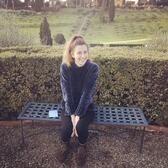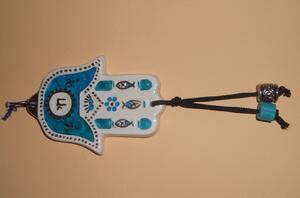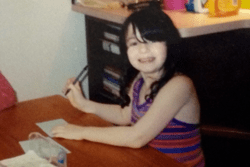Figuring It Out
“So, I don’t know if I told you . . .” I was taking a calm walk through the woods with my dad and my chocolate labradoodle. “But I applied for this fellowship called Rising Voices.”
“No, I don’t think you did,” my dad responded in accented English. “What’s that?”
I paused for a moment, not exactly sure how to explain the program—especially since I wasn’t quite sure myself what it was. “Well . . .”
My dad waited patiently, his kind face hidden by a black beard.
“You know what a blog is?” He nodded. “Well, if I get in, I’ll be working for a blog. A Jewish Feminist blog.”
“Jewish Feminist?”
“Jewish Feminist.”
He paused, waiting for me to elaborate. “Are you a feminist?”
“Yeah,” I said, slightly indignant, “of course!”
“Oh. A . . . Jewish Feminist?”
“Yeah.”
“Jewish Feminist?”
“Jewish Feminist.”
“Well, what the heck do Jewish and Feminist have to do with each other?”
I was about to be angry when I realized that I didn’t know the answer to this question myself. Being Jewish and being Feminist certainly weren’t mutually exclusive, but how much did they really have in common? Traditional Jewish communities are known for segregating women during religious services and frowning upon females who choose to wear jeans or tank tops outdoors. Even the Torah, the holy book that has taught me the values of kindness and acceptance, frequently pushes women onto the sidelines of our history.
And feminism? Feminism, to my limited understanding, was a humanist movement.
A secular movement.
So how in the world was the rigid, traditional, millenniums-old practice of Judaism in any way connected to feminism, a movement that aims to restructure societies’ ideals and question tradition? How could I identify as both a believing Jew and as a feminist, not to mention lumping them together into one phrase? The more I repeated them to myself, the more the words ‘Jewish’ and ‘feminist’ sounded incorrect side by side, like “candied broccoli” or “kind bigot.” Coming to terms with these two ideologies simultaneously sounded strange and artificial.
Well, I reminded myself, you’re not exactly a Chasid.
I am Jewish, but I have never considered myself particularly religious. I am far from a traditional Jew. Sure, I go to Rosh Hashanah and Yom Kippur services each autumn and light Shabbat candles every once in a while, but that’s about as far as I go. I have never truly believed that the Torah was literally God’s word—I see the Torah as very important, but far from the absolute truth. I have always thought it was more important for our tradition to evolve and adapt to its surroundings. In short, I consider myself a Reform Jew.
So maybe for me, feminism could and should fit into the picture. Of everyone in my immediate family, my mother and I, the only two women of the household, were the most observant and interested in Judaism. The two of us are always the ones to lead the Seder or introduce new holidays and religious traditions to our family. The last two bar mitzvah services in our family had actually been bat mitzvah services. For me personally, my Jewish identity and my identity as a female had, in fact, come from the same source: my mother.
I turned back to look at my dad. In many ways, he is the polar opposite of my mom. While she has been a source of guidance spiritually and morally, my father has always been the voice of reason in our household. Balancing my father’s decided atheism with my mother’s growing religious observance has been both a challenge and a blessing for our family. I am used to the process of blending different and even conflicting ideologies. “I’m not sure,” I responded finally, smiling. “That’s why I want to do this program. To figure it out.”
This piece was written as part of JWA’s Rising Voices Fellowship.








Hi: Judaism and feminism have a number of things in common. Both Jews and women have been the traditional victims of invidious discrimination.
I am Jewish--in fact, I'm a Holocaust survivor--and am proud to have been a co-founder of NOW and the first woman attorney in the Office of the General Counsel at the EEOC (Equal Employment Opportunity Commission). I did a study of the 49 founders of NOW several years ago and was pleased to see the number of Jewish founders exceeded the proportion of Jews in the US population, which is somewhat less than 2%.
So far, I have spent about 50 years fighting for women's rights and hope to continue as long as I can. If interested in my work, check out my website at www.erraticimpact.com/fuentes and read my memoir, "Eat First--You Don't Know What They'll Give You, The Adventures of an Immigrant Family and Their Feminist Daughter." Or email me at spfuentes@comcast.net
In reply to <p>Hi: Judaism and feminism by sheyndl
That's a really interesting fact! Thank you so much for commenting and for the work that you do.
Traditional Judaism and Feminism in their pure forms may not naturally intertwine. What bring them together are people who are passionate about both of them. Ideologies and religions are nothing without people who carry them. If these people seek conciliation of two ideologies, they find common ground in them, and then a new idea is born. Jews found ways to adapt the rigid practice of Judaism to the modern world. Feminism is an integral part of the modern world. Now people like you are bringing the ancient religion and the modern ideology together. I support you with all my heart!